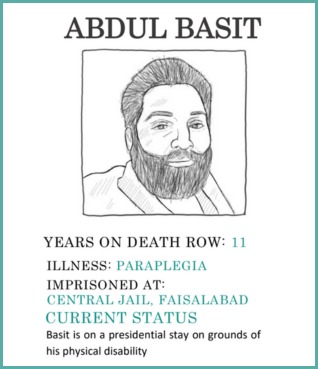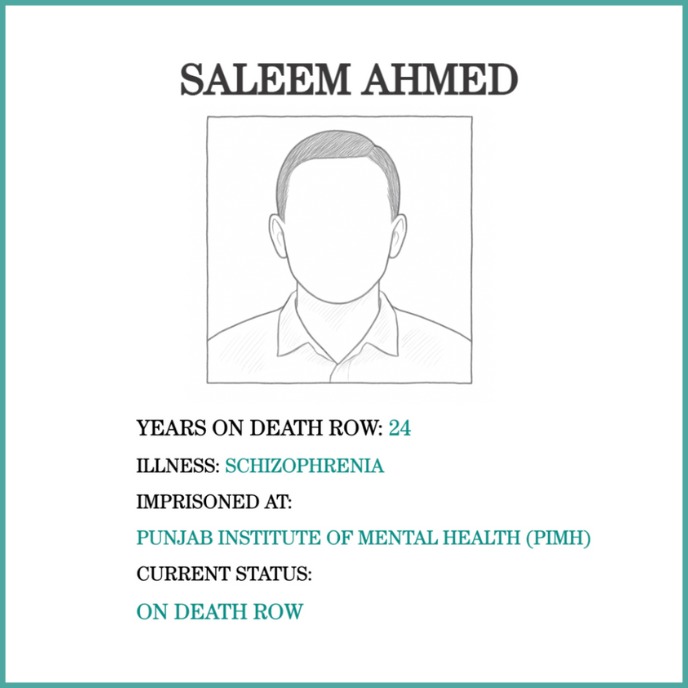Justice Project Pakistan continues to push the boundaries of strategic litigation to safeguard the rights of death row prisoners with serious mental and physical disabilities—many of whom have languished in prison for decades without access to appropriate care.

In April 2025, long-time JPP client Abdul Basit—a paraplegic prisoner who has spent over 16 years on death row—was hospitalised after experiencing severe internal bleeding and liver-related complications. Basit’s case has long stood as a strategic milestone in Pakistan’s death penalty jurisprudence: his planned execution in 2015 was halted after JPP demonstrated that hanging a paraplegic man would violate Pakistan’s obligations under the International Covenant on Civil and Political Rights (ICCPR) and the Convention Against Torture (CAT).
In May 2025, as his condition became critical, JPP filed a petition before the Faisalabad Sessions Court—without needing to escalate to the High Court or Supreme Court—to request his immediate transfer to a medical facility. The court ordered his transfer to DHQ Hospital Faisalabad, where he finally received the urgent care he needed. This outcome not only saved Basit's life but also marked a strategic shift in how lower courts are beginning to respond more quickly and rights-responsively to medical emergencies on death row.

In a major relief, Saleem Ahmed, a 68-year-old death row prisoner with chronic schizophrenia, was transferred to the Punjab Institute of Mental Health (PIMH) in February 2025 under protections set by the landmark Safia Bano ruling. Saleem—another JPP client whose execution was halted in 2015—has spent more than two decades on death row and represents the very category of prisoner the Supreme Court sought to protect through its jurisprudence on psychosocial disabilities and the death penalty.
Upon admission to PIMH, however, Saleem was found to be kept in physical restraints, despite his fragile mental state. In March 2025, JPP wrote an application to the relevant authorities, citing constitutional protections, international legal standards, and the Safia Bano judgment to demand the removal of shackles.
The response was swift: PIMH removed the restraints, allowing Saleem to begin psychiatric treatment in a more humane and therapeutic environment.
This relief came against the backdrop of the tragic death of Ghulam Abbas—one of the original petitioners in the Safia Bano case—who died in 2024 at PIMH while still in shackles. His death served as a stark reminder of the urgency of reform and the human cost of systemic failure. Saleem’s case, by contrast, offers a measure of accountability—and a glimpse of progress—as courts and institutions begin to internalise and act on rights-based standards without waiting for higher court directives.
Together, these outcomes reinforce the power of strategic litigation to shift state behaviour, deepen compliance with human rights norms, and ensure that vulnerable prisoners are treated with the dignity, care, and protection they are entitled to under law.